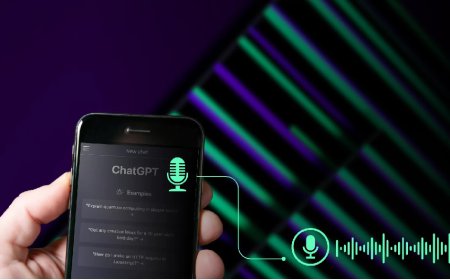In a remarkable step forward, synthetic intelligence (AI) has played a pivotal function in restoring speech to a forty-seven-year-vintage stroke patient who has been unable to talk for 18 years. This groundbreaking success highlights the transformative capacity of AI in healthcare, mainly in addressing long-term demanding situations related to speech disabilities as a result of neurological conditions.
The Struggle of Speech Impairment:
For individuals who've suffered strokes or other neurological injuries, regaining the ability to speak can be an arduous journey. Traditional speech therapy methods frequently have limitations, especially whilst dealing with instances wherein the communique has been impaired for a prolonged length. Such sufferers may additionally battle to articulate words because of muscle atrophy, loss of neural pathways, or cognitive problems.
The AI-Powered Solution:
In this specific case, an AI machine was developed by using a group of researchers and healthcare professionals. The gadget employed advanced gadget studying algorithms to investigate the patient's brain alerts and convert them into speech. By utilizing brain-laptop interface generation, the AI model decoded the patient's intentions to form words, phrases, and sentences. These linguistic outputs were then translated into audible speech through a speech synthesis module.
The Journey to Recovery:
The patients underwent intensive training periods in which they were related to the AI system. Initially, the gadget required the best tuning to align with the affected person's specific neural styles and intentions. Over time, the affected person's brain indicators became extra coherent, allowing the AI to appropriately translate their thoughts into spoken language. This gradual development finally caused the affected person to be able to specify themselves audibly.
A Life Transformed:
The recovery of speech for this stroke-affected person has brought about a profound transformation in their existence. After nearly many years of being not able to speak verbally, the patient can now interact in conversations, specific feelings, and bring their wishes and desires. This achievement not only effectively improves their quality of existence but also enhances their interactions with their cherished ones and caregivers.
Also see: tech news latest: Meta’s Leap into AI-Powered Code Writing: A Paradigm Shift in Programming
Implications for the Future:
The fulfillment of this AI-pushed technique opens up new avenues for speech restoration in people with lengthy-standing speech impairments. While the technology continues to be in its early ranges, it holds colossal promise for improving the lives of those affected by strokes, mind accidents, and different situations that impact speech. As AI keeps adapting, it has the capacity to revolutionize rehabilitation and allow individuals to regain crucial capabilities that were once taken into consideration irrecoverable.
Ethical Considerations:
While the advancement of AI in healthcare offers super opportunities, it additionally raises moral concerns. The use of AI to decode and interpret brain signals brings up questions about privateness, consent, and the capacity for invasive strategies. Striking stability among technological innovation and moral safeguards is crucial to make sure that such interventions are done responsibly and with the well-being of patients at the vanguard.
Conclusion:
The case of the stroke patient who regained speech via AI showcases the awesome capacity of the era to convert lives. This step forward not simplest gives hope to people who've lost their potential to talk but additionally underscores the importance of interdisciplinary collaboration between AI professionals, neuroscientists, and healthcare specialists. As AI continues to increase, it's miles in all likelihood to pave the manner for extra progressive answers that push the boundaries of what is feasible within the realm of clinical rehabilitation.
Also see: education news india
Follows Us for More Updates
Like Us on Facebook Page: Click Here
Like Us on Instagram: Click Here 




























